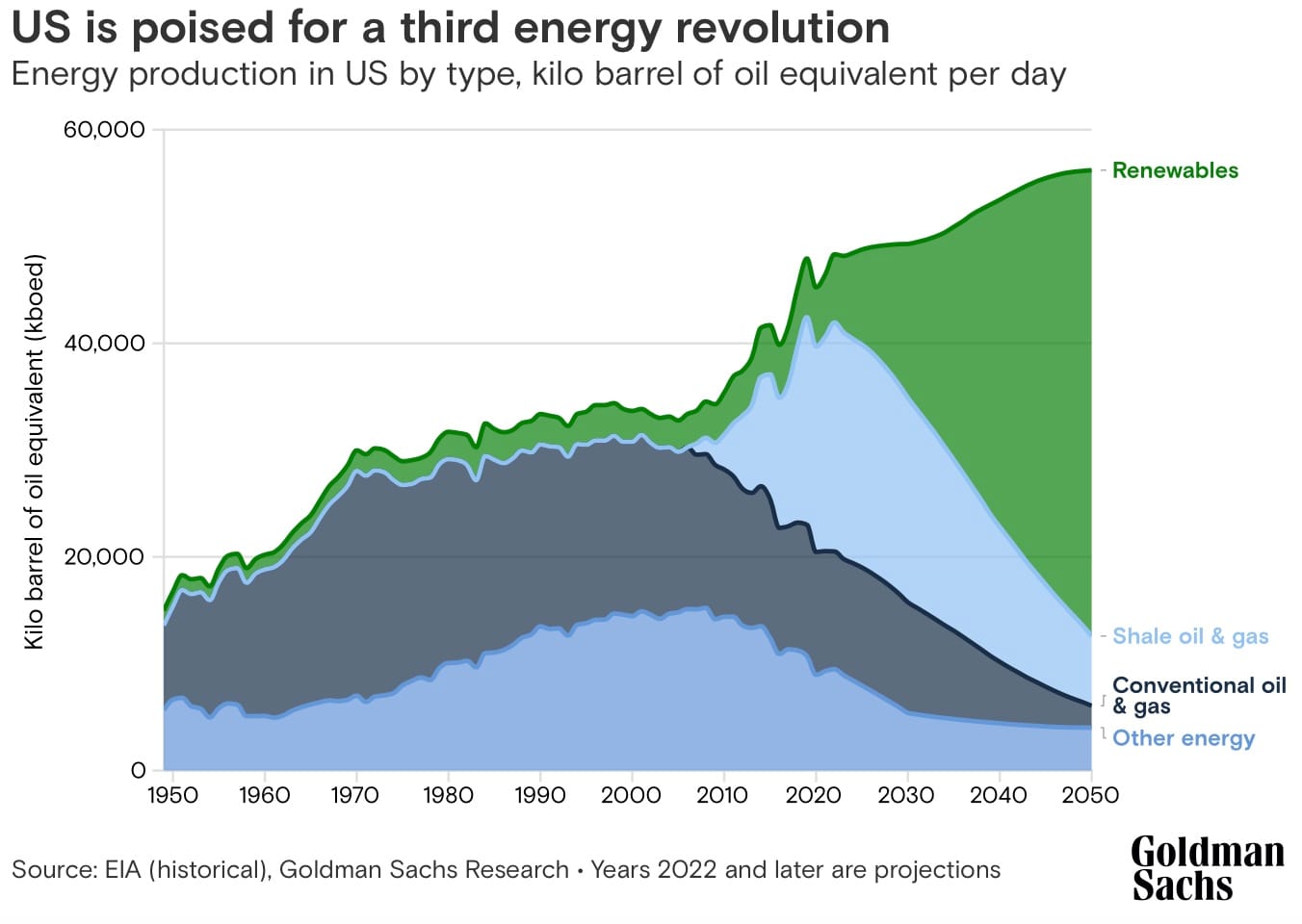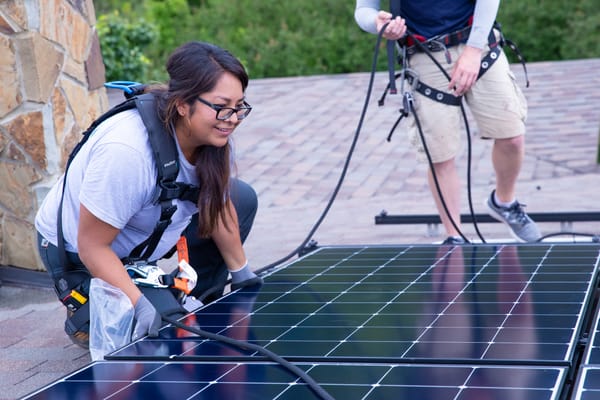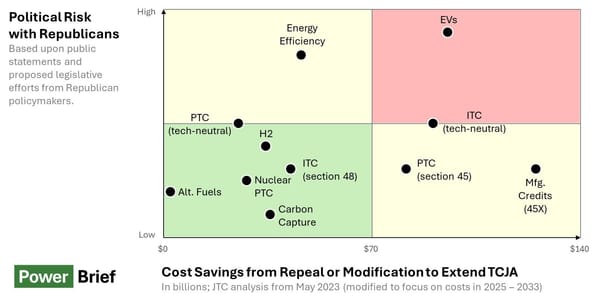Highest Paying Solar Energy Jobs

For most people finding a job in the solar industry means earning a paycheck while contributing your skills and abilities to develop clean energy. Although the transition to zero carbon emission energy sources is well underway, we are now entering a significant growth phase in new job opportunities. With concerns over climate change individuals, companies, and governments are ramping up their efforts to source all of their energy from renewables and solar is now the first choice for many.
The Inflation Reduction Act will provide significant incentives to build and scale solar energy in the United States. The estimated amount of investment is truly extraordinary. Goldman Sacks believes the act will lead to $3 trillion invested in renewable energy technology between now and 2032. The chart below offers a great summation of the direction we're likely heading.

With this massive opportunity ahead, you can truly make your own way. Since the growth phase of industry is relatively new, there aren't many people with significant years of experience. That means solar companies are often looking for raw talent, motivation, and a willingness to learn.
Solar Job Types
The solar industry is large and the types of jobs available cover a wide variety of skills and educational backgrounds. This is great news for anyone looking to transition into solar from another industry.
Solar Installers
Solar installers are the boots on the ground army of the industry. These are the people who do the labor of installing solar photovoltaic (PV) systems on buildings, rooftops, carports, and in large utility scale installations. The amount of experience and technical skills required for installer jobs can vary from project to project. Typically you would need basic mechanical and electrical skills and people with a general construction or carpentry background will often do well in these jobs.
The jobs may be local, regional, or national and could require travel if you work for a large solar contractor that is building utility scale systems across the country.
Technical certifications can greatly help a person to advance their career as an installer, or certifications can help with transitioning into solar. For installers, the gold standard is the NABCEP PV Installation Professional (PVIP) Board Certification. Achieving NABCEP certification requires a significant effort, time commitment and a fee, but it is the most recognized and respected installer certification in the industry.
Solar Sales Representative
Solar Sales Representatives are responsible for educating customers on the value of solar PV systems for their homes and businesses. This can include understanding the customer's electrical usage and calculating how solar may offset some or all of their electrical bills. The sales rep translates this into financial value and compares the savings from solar vs. the installation cost. In some instances, especially in the residential market there may e multiple ways that a customer can get a system installed, ranging from paying directly for it to taking out financial or subscribing with a monthly cost that includes everything.
Many people get started as solar sales representatives by transitioning their sales skills from other industries. Others may come from an installer background and are looking for a change that will allow them to interact with customers during the up front selling and planning process.
Training is also available for solar sales reps and others involved in customer relations, project development, and design. One great course for sales reps is from Heatspring and is titled The Psychology of Solar Sales - How to Win Deals and Influence the Future. Another certification to consider is the NABCEP PV Technical Sales certification that provides comprehensive technical and marketing education to put you quickly above the competition for jobs.
Solar Engineer
Solar Engineers are capable of doing the detailed engineering design work required to size and optimize and entire solar pv system. This can include understanding and defining the desired electrical requirements for the system to meet the needs of the client. Solar pv systems can be designed and sized to deliver specific voltage and amperage as needed and battery storage is often considered for emergency backup or to stabilize power delivery to the property.
Solar engineers often have electrical engineer backgrounds or experience but sometime mechanical engineers are trained in solar. They may have a bachelors degree or they may have associates degree. People who have the Engineer in Training or Professional Engineer designations are in high demand for these jobs. Proficiency in CAD software and the ability to perform electrical calculations are key skills. You will have to develop a strong understanding of electrical and building codes, and the National Electrical Code to be successful in this work. This 58-Hour NABCEP Advanced PV Certification Training + PV Associate Exam Prep course can give any engineer a firm understanding of everything that is required to know when designing residential and commercial systems.
Solar jobs are set to boom over the next 10 years. Now is the time to consider making the jump if you are thinking of transitioning from another industry.





